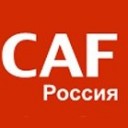I recently made a decision not to write about Russian politics in my next piece for this blog. Alas, I can’t keep this promise as our government once again decided to get engaged in agenda-setting for the sector, and in a rather big way – by throwing the US Agency of International Development (USAID) out of the country on the basis that they were using their funding to interfere with political issues, and the electoral process in particular. There is no question that this move by the Russian government follows the logic of classifying Russian NGOs funded from abroad as ‘foreign agents’ and building an atmosphere of hostility and suspicion around them.
USAID started working in Russia 20 years ago and their support in setting up NGOs and building their capacity was, without overestimation, a decisive factor for the sector’s development. In earlier years, USAID spent hundreds of thousands of dollars in Russia annually; even in the current year their budget was reported to be as large as $60 million.
One could argue that Russia, not being a poor country any more, may not need this support any longer. This was exactly the reason why other bilateral donors (like DFID and some private foundations) exited the country, relocating their funding to other parts of the world, 5-7 years ago. At that time, USAID decided to stay but their budgets became smaller and their focus shifted from supporting NGO development and advancing particular causes, such as the fight against HIV/AIDS, to building partnerships with private sector companies and whole regions. CAF Russia was lucky to be part of two of such projects – one in partnership with the SUAL aluminium company and another with the Krasnoyarsk region. We worked in a large team of expert NGOs on complex programmes of community development, economic revitalization and capacity-building of various local institutions. I doubt that any other piece of work of similar complexity and quality has ever been done in Russia at such a large scale and with similar impact, as USAID has an incredible resource to put into their projects – not just money, but also knowledge and capacity of their numerous NGO partners.
What impact will USAID’s exit make on the Russian NGO sector? Without going into the political aspect of this situation, I am confident that it will produce a great dent in funding for organizations engaged in advocacy activities, working in the area of human rights or concerned with other causes that could be called ‘unpopular’. With the rapid development of domestic giving in Russia, local resources are hardly available to this cluster of organisations either because they look too political (=dangerous) or because causes they care about are not considered worthwhile (=sexy) by the general public. It is pretty easy for a charity helping sick children to raise money from companies and the general public, but charities advocating for inclusive school education for children with disabilities find it much harder to get this work funded locally, as people are prejudiced or simply not aware of the issue. That’s why donors like USAID are so important – they are not a substitute for domestic giving but rather fund in the areas that are not yet attractive to local donors. Investing in these areas not only advances the field but also builds capacity of organizations and helps to raise awareness, thus giving these unpopular causes a chance to become part of the public agenda and be more attractive for local funding.
A success story of this kind the massive USAID support for promotion and capacity-building in the area of foster care as an alternative to orphan institutions. Now the development of foster care is a top priority for state social policy, numerous NGOs, volunteer groups and local philanthropists. In other words, there is nothing like development funding, and I am afraid there will be nothing like USAID in this field in Russia in terms of vision and scale.
USAID operates with the slogan ‘From American people’. I can’t speak on behalf of all the Russian people, but it is now a good time to say thank you; without this assistance, Russia would be a different country.
Maria Chertok is director of CAF Russia
Further articles from Alliance magazine related to these topics:







Comments (1)